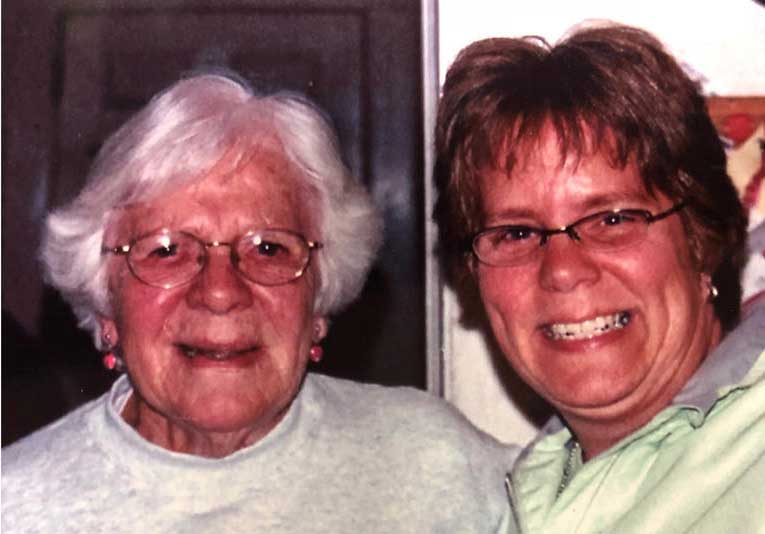<< Back
How To Help Parents As They Age

January 31, 2018
By Margaret DeMarino
Perhaps, having recently visited your family during the holidays, you can’t stop thinking about how surprised you were when you walked into your mother’s kitchen for the first time in months and saw crumbs scattered over the counter and dust bunnies settled under the table.
Your mother had always been such a fastidious housekeeper. You probably shouldn’t worry, but you’re not sure.
Seemingly small things that adult children might have noticed during holiday visits to their parents’ home – an untidy kitchen, not enough food in the refrigerator – can, in fact, be important clues as to whether your loved one is slipping physically or cognitively. The main question to keep in mind is, Do they have the care they need?
“Children might notice that a parent’s hygiene might not be what it used to be,” says Laurie St. John, vice president of Hartford HealthCare at Home. “They may not be showering as much or combing their hair. The level of nutrition has gone down and the person has gotten thinner or more frail. Their clothes might be too baggy.”
You might have spotted something telling during your holiday visit because of the concentrated time you spent with your loved one, adds St. John.
“In my experience, it’s very rare that people self-identify and come to us and say, ‘I need some help,’” St. John says.
Typically, it’s the person’s children who initiate extra care – and it’s better to do this sooner than later. The little things that you pick up on might be signs of the onset of what could become a bigger problem, she says.
Did you notice during the holidays that your mother or father was walking more unsteadily? Did they repeat conversations, a sign of forgetfulness? St. John cautions not to dismiss these things as insignificant, or assume the worst. Their symptoms could be serious or could be the result of a urinary tract infection, which can cause confusion, or hearing loss, she adds.
“The first thing you should do if you notice changes is to take your loved one to the doctor,” St. John says.
Together with the doctor, particularly one with geriatric care experience, you can create a plan for your parent. The good news is that often, with additional care, the parent can stay safely in his or her home.
“Most of our clients may start with two hours of service three times a week and progress to more services as they need them,” St. John says.
During those few hours each week, a health care aide might help the person shower, do laundry and make a meal. Jan Zagorski, a teacher from Berlin, realized her mother needed more help than she could offer after her mother’s small toe infection had gone untreated, resulting in a far more serious amputation.
Having the extra help allowed Zagorski’s mother to remain in her home. “My mother got to live life on her terms.” Zagorski says.
That extra assistance also gave Zagorski, who was her mother’s primary caregiver, a bit of a respite herself.
“I lived one mile away,” she says, “so I was the one always running over to check on her. Having someone else there kept me from constantly having to take time off from work.”
Once you notice that your parent needs additional help at home, that’s the time to begin a conversation about what they need. A parent-child role reversal can cause tension in your relationship, and some people have a hard time accepting that they can no longer live as independently as they once did.
Be straightforward with your parents and don’t hide negative information. Also, try phrasing your concerns as questions so that your loved one can make choices. If your parent still has trouble accepting help, ask a neutral third party to advise your family on a caregiving plan. And accept differences of opinion with other family members and seek compromises.
Hartford HealthCare at Home, a Hartford HealthCare Partner, enables individuals to achieve maximum independence, to participate in their own plan of care, and to live with dignity while receiving quality care in their own homes. For more information or to schedule a visit, call 1.800.HOMECARE/1.800.466.3227 or visit hartfordhealthcareathome.org.